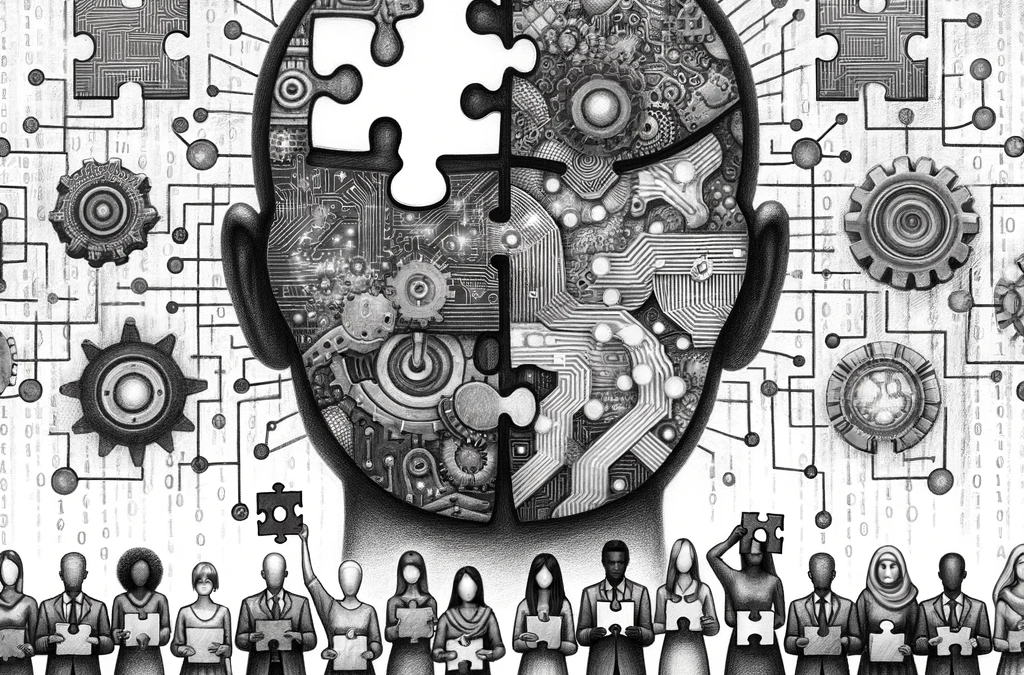Navigating Bias and Fairness in Ai: A Critical Focus for HR Leadership
The Double-Edged Sword of Ai in HR
As Ai continues to redefine the landscape of Human Resources (HR), it brings with it a significant challenge: the issue of bias and fairness. While Ai can streamline HR processes and enhance decision-making, if not carefully managed, it also has the potential to perpetuate and amplify biases. For HR leaders, understanding and addressing this challenge is not just a matter of ethical responsibility but a strategic imperative.
The Reality of Bias in Ai
Ai systems are only as unbiased as the data they are trained on. In HR, this means that historical biases in recruitment, performance evaluations, and compensation can inadvertently be encoded into Ai algorithms. This can lead to discriminatory practices, affecting everything from talent acquisition to employee development.
What HR Leaders Need to Consider
- Data Scrutiny and Diversity: The first step in mitigating bias is to ensure that the data used to train Ai systems is diverse and representative. HR leaders must scrutinize their data sources for potential biases and take steps to diversify this data.
- Algorithmic Transparency: Understanding how Ai makes decisions is crucial. HR leaders should prioritize transparency in Ai systems, ensuring that decision-making processes are clear and understandable.
- Regular Auditing and Updating: Ai systems should not be set and forgotten. Regular audits are necessary to identify and address any biases that these systems may develop over time.
- Collaboration with Ai Developers: Working closely with Ai developers and data scientists can help HR leaders ensure that Ai tools are designed and updated with fairness in mind.
- Training and Awareness: HR teams and all Ai users need training to understand the potential for bias in Ai systems. This awareness is critical in ensuring that Ai tools are used responsibly.
- Ethical Frameworks and Standards: Developing ethical frameworks and standards for Ai use in HR can guide decision-making and help maintain a focus on fairness.
- Legal Compliance: Staying informed about and compliant with existing and emerging laws related to Ai and employment is crucial to avoid legal repercussions.
The Human Element in Ai
One of the most effective ways to combat Ai bias is to maintain a ‘human-in-the-loop’ approach. While Ai can assist in decision-making, final decisions, especially those related to sensitive HR matters, should involve human judgment.
Future-Proofing HR Practices
Looking forward, HR leaders must stay informed about advancements in Ai and their implications for bias and fairness. Investing in ongoing education and staying engaged with the latest research and discussions around Ai ethics will be key.
In my opinion, some of the most relevant publications today include:
- Harvard Business Review (HBR): Known for its insightful articles on business and management, HBR often covers topics related to AI’s impact on HR and organizational strategy.
- HR Technologist: Specifically focused on HR technology, this publication offers the latest news, articles, and insights on how AI and other technologies are transforming HR.
- Society for Human Resource Management (SHRM): SHRM provides a range of resources, including articles and research papers, on the latest trends and best practices in HR technology, including AI applications.
- Forbes – HR and Leadership Sections: Forbes regularly features articles on the intersection of AI, leadership, and HR, discussing the latest trends, challenges, and opportunities.
- TechCrunch: While not exclusively focused on HR, TechCrunch covers the latest in technology, including AI developments that have implications for HR practices.
- MIT Sloan Management Review: Offers in-depth research and articles on how AI and digital transformation are impacting management and HR.
Balancing Ai Advancements with Fairness
As HR continues to integrate Ai into its core functions, leaders must proactively address the challenges of bias and fairness. By taking a thoughtful, informed approach to Ai deployment, HR can harness the benefits of this technology while upholding the values of equity and fairness. The goal is not just to adopt Ai, but to do so in a way that enhances the HR function ethically and responsibly, setting a positive precedent for the future of work.
